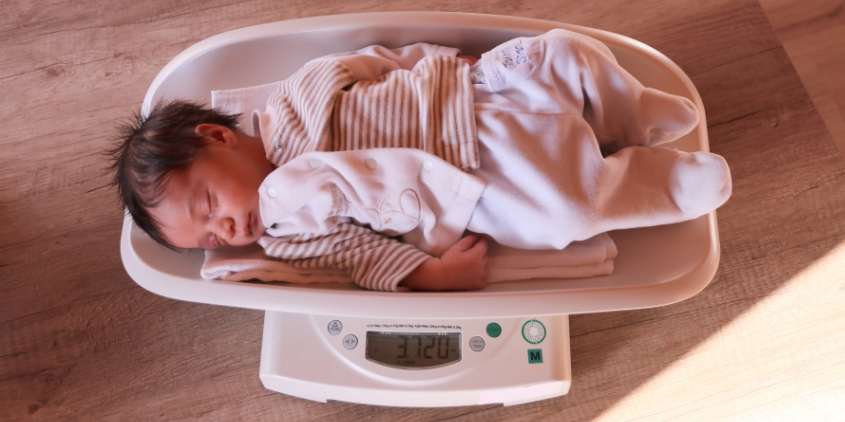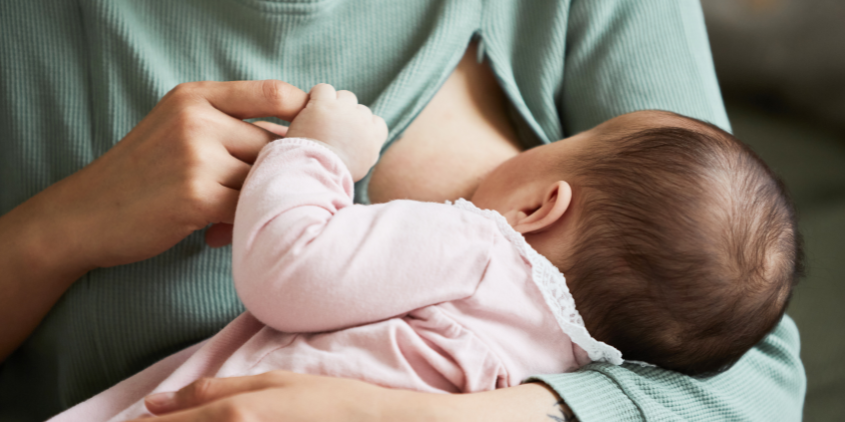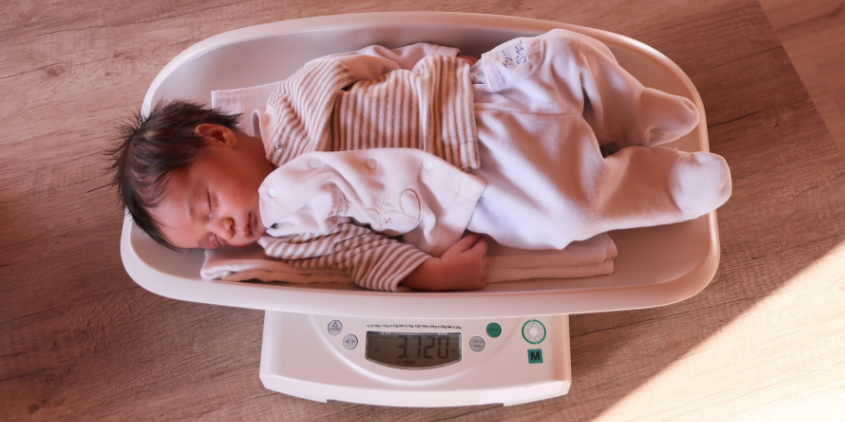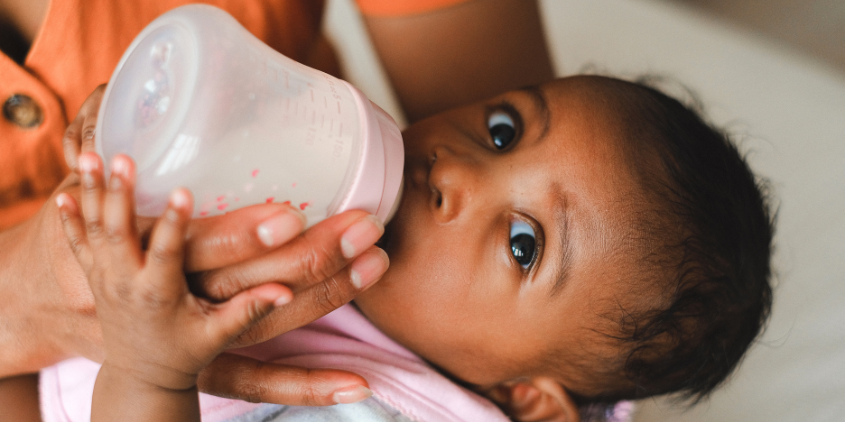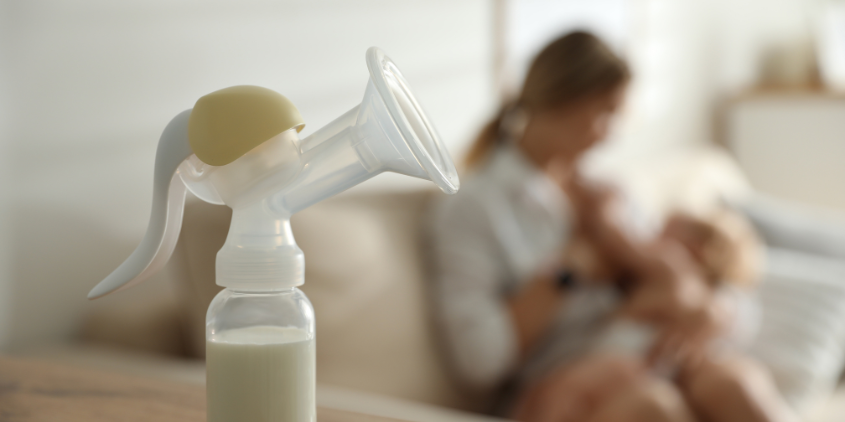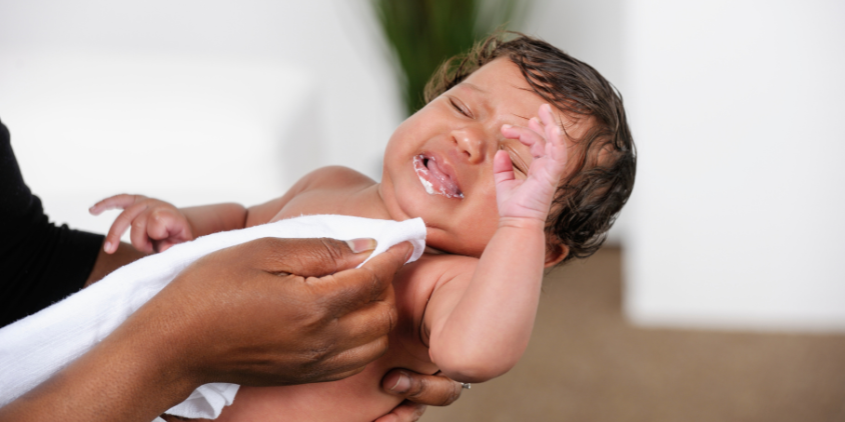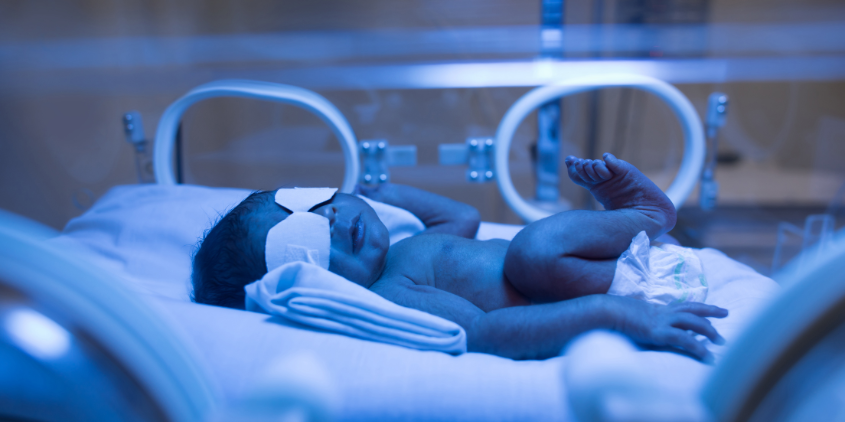Babies grow at different rates
You may sometimes worry that your baby isn’t gaining weight, and wonder if your baby is drinking breastmilk appropriately, or if breastmilk alone is not enough.
Each baby grows at his own pace. One baby may seem to be growing at a fast pace, while another seems to be growing at a slow pace. Babies sometimes don’t gain much weight even if they drink enough breastmilk, so there’s really no need to be concerned.
Also, it is said that newborn babies lose 10% of their body weight during the first few days after birth.
This is a physiological phenomenon that is caused by the elimination of excess body fluid, which babies retain inside the uterus.
Babies usually return to their birth weight 2-3 weeks after birth when breastfeeding is going normally.
How to determine if your baby is gaining weight adequately
Determine if your baby is gaining weight appropriately not only by whether he is drinking enough breastmilk, but also by whether your baby is energetic, how much urine is released, how your baby drinks breastmilk, the characteristics of the breastfeeding rhythm. Develop an eye for determining if your baby is getting enough breastmilk.
If you observe signs such as the baby being unenergetic and not responding well, the diapers not being wet often, infrequent bowel movements, an inconsistent breastfeeding rhythm (breastfeeding sessions are too long, intervals are too short, your baby can't drink appropriately), consult doctors, midwives or consultants.
If your baby doesn't gain weight steadily, the possible causes include lack of breastmilk intake, which means that breastmilk is insufficient in quantity, and hyposecretion of breastmilk. Don't try to judge the production quantity by yourself; seek advice from a specialist.
Signs that a newborn is receiving sufficient breastmilk
- He breastfeeds at least eight times in 24 hours.
- During a feed, his suckling rhythm will slow down as milk is released, and swallowing or gulping may be heard.
- He is alert, and has good muscle tone and healthy skin.
- He is contented between feeds (though well-fed babies may be fussy for other reasons, leading mothers to believe they don’t have enough milk).
- He has six or more wet diapers in 24 hours; with pale, diluted urine.
- He will have three to eight bowel movements in 24 hours.
As babies grow older, stooling may be less frequent. - He shows a consistent weight gain, with an average of 18-30 grammes/day.
- The mother's breasts may feel full before a breastfeed and softer afterward, though not all women experience a dramatic change.
(Source: UNICEF WHO, "UNICEF/WHO Breastfeeding Management and Promotion in a Baby-Friendly Hospital, an 18-hour course for maternity staff”, 1993, p. 68)
Signs that a baby is not gaining weight adequately
- He grows less than 18 grammes/day.
- He has not recovered his birth weight by three weeks.
- His growth line is not rising appropriately on the growth curve.
- He sleeps for long periods of time to conserve energy.
- He seems lethargic and has a weak or high pitched cry.
- His urine output may be low with concentrated urine; or urinary output may be normal. Urinary output alone is not a reliable measure of weight gain.
- He has very few stools, or none at all.
- He may stay at the breast consistently.
- He may have a worried look on his face, with hanging folds of skin on his body.

(Source: UNICEF WHO, "UNICEF/WHO Breastfeeding Management and Promotion in a Baby-Friendly Hospital, an 18-hour course for maternity staff”, 1993, p. 69)
refers to the average body weight of infants fed only on breastmilk
Fig. 10-A-1 Standard body growth percentile curve of infants fed only on breastmilk (compared to NCHS growth curve)
(Reference; Dewey KG, et al; Pediatr Clin North Am, 48:92-93, 2001)


